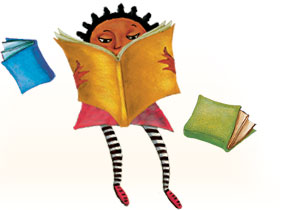Tuesday, June 30, 2015
Friday, June 19, 2015
Drop Everything and Read
Reading is important. Today’s society
is based on effective reading skills. The ability to be a good citizen, to
acquire knowledge and make sound decisions are all predicated on one’s ability
to read, and read well. Even amidst the social media craze, the key to being
effective, being liked, and being followed is the readability of the posts.
Words emit a response, rather good or bad, positive or negative. We connect
with family and friends, our past and our futures with words. They are
everywhere we are and even in places devoid of sound or light, words exist.

Knowledge = Power
Ensuring that your
children can read may be the difference between life and death, success and
despair – yes, it’s that urgent. Thus,
incorporating reading strategies and activities into your daily routine of
playing, writing, listening, making, and grooving to music, and talking are
integral to your child’s success and survival.
|
Activity
Shop till You Drop
Shopping for groceries is just one of many daily routines that you
can use to help your child learn. Shopping is especially good for teaching your
child new words and for introducing him to new people and places.
What You Need
Grocery shopping list
What to Do
1. Pick a
time when neither you nor your child is hungry or tired.
2. At the
grocery store, put your child in the grocery cart so that he faces you. Take
your time as you walk up and down the aisles.
3. Let
your child feel the items that you buy — a cold carton of milk, for example or
the skin of an orange. Talk to your child about the items: "The skin of
the orange is rough and bumpy. Here, you feel it."
4. Be
sure to name the objects that you see on shelves and talk about what you are
seeing and doing: "First, we're going to buy some cereal. See, it's in a
big red and blue box. Listen to the great noise it makes when I shake the box.
Can you shake the box? Now we're going to pay for the groceries. We'll put them
on the counter while I get out the money. The cashier will tell us how much we
have to pay."
5. Encourage
your child to practice saying "hi" and "bye-bye" to clerks
and other shoppers.
6. Leave
for home before your child gets tired or grumpy.
Resources
Click on any of the following to join our social media campaign and share:
Subscribe to:
Comments (Atom)






